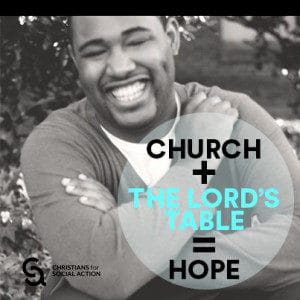

Swidler is the founder and president of the Dialogue Institute. His education and resume are as impressive as his manner is no-nonsense; the dialogue principles that he promotes are, by his own estimation, “simple, commonsense” observations. (You can download his “Dialogue Decalogue” in English or in 18 other languages.) He explained that the word dialogue comes from two Latin words: dia, meaning across or together, and logica, meaning logic or thinking. So when we agree to dialogue, we agree to think together. We come primarily to learn from the other rather than to teach the other, although in true dialogue all participants necessarily both receive and impart knowledge. But it is this primary stance of expecting to learn that puts us in a position to be capable of—and to benefit from—dialoguing.
“Nobody knows everything about anything,” asserted Swidler, explaining that this is precisely why we need to approach each other as learners eager for greater understanding.
It is significant that in a world torn by violence, religious extremism, and political polarization, Pope Francis has proposed both interreligious dialogue and Christian unity as his first two prayer intentions of 2016. The Pope’s prayer video debut—stating that Buddhist or Jew, Muslim or Christian, we are all children of God—was welcomed by many but has others worried, revealing the anxiety pervading many Christians that dialogue and its call to listen will ultimately dilute the truth and weaken the body of Christ.
In my experience, nothing could be further from the truth. Healthy dialogue reveals to us what we truly believe, some of which needs to be challenged, whether by those outside our faith or those within. CSA’s Oriented to Love dialogues bring Jesus-followers together across theological divisions and from a broad range of sexual orientations and gender identities. And together we seek—and find—a unity that is deeper than agreement.
In spite of our human proclivity for playing it safe by sticking within our own tribe, dialogue is a necessary, lifegiving, and ubiquitous phenomenon, Swidler told his audience. “The whole cosmos is fundamentally dialogic,” he said, from the macro level to the micro level. Protons dialogue with electrons, matter with light, female with male, body with spirit. Even the Trinity demonstrates this, he pointed out: God in dialogue with Godself.
When it comes to interreligious dialogue, said Swidler, the points of difference between religions “are often very different from what we imagine they would be.”
Fear is the great enemy of dialogue. Our fear of discomfort, of having to face our own questions and doubts, of being “wrong” too often keeps us from the beauty of dialogue, of thinking together. The kingdom of God is poorer each time we back away in fear rather than taking hold of the freedom we have in Christ—freedom to love, to listen to, and to learn from another.
Kristyn Komarnicki is the director of Oriented to Love dialogues on sexual and gender diversity.
Also of interest:
Club Modernity for Reluctant Christians by Leonard Swidler
“Partaking of Each Other’s Faith Journeys” by Kristyn Komarnicki
“Love Renders Us Worthy” by Kristyn Komarnicki


